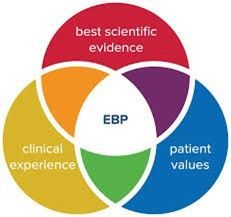The Urgent Need to Address Trauma In Health Discussions
One ten-question assessment could improve health, less incarceration, and decreased healthcare costs.

Last month, I read President Trump’s announcement that he was establishing a Make America Healthy Again (MAHA) Commission. I was curious about the recommendations, considering that Robert F. Kennedy Jr., or RFK Jr., would be the new head of the Department of Health and Human Services. I figured that childhood illness, chronic diseases, autism, and ADHD would be prominently covered. Unfortunately, one keyword that significantly impacts most of these conditions was not mentioned.
It's crucial to note that the word 'trauma' was notably absent from the MAHA Commission's focus. This is a significant omission, given the profound impact of trauma on a wide range of health conditions.
This omission was not a surprise. Trauma does not receive as much media attention as other conditions or factors in health. Project 2025’s plan, developed by the Heritage Foundation and used as a blueprint by the Trump Administration, never mentioned trauma. What was surprising was that RFK did not say it during the commission's formation. Having experienced the tragic death of his uncle at age nine and his father’s assassination at age 14, followed by his subsequent struggles with drug and alcohol abuse, I would have thought he would place a premium on trauma.
One would think that those who want to “Make America Healthy” would focus on what makes America unhealthy. After all, trauma susceptibility can be easily measured with the Adverse Childhood Experiences Survey (ACEs). This measure of ten questions examines whether the participant experienced abuse (physical, sexual, or emotional) along with neglect, domestic violence, and other events. It correlates with chronic mental and physical illnesses later in life. A recent report indicated that 80% of community physicians have never heard of the ACEs questionnaire, and only 3% reported using it in practice. So, if it were used, what could it find?
According to the Centers for Disease Control, 16% of adults have experienced four or more events from the ACEs; five of the top ten leading causes of death are associated with these ACEs, and preventing ACEs could reduce the number of adults with depression by as much as 44%.
However, MAHA, according to RFK Jr., focuses on chronic conditions. Could ACEs and the study of trauma help them? Research has shown that people with four or more ACEs are two to three times more likely to smoke, misuse alcohol, and develop chronic diseases, such as cancer and cardiovascular disease. These are compelling studies. And some might say this affects adults, but how about autoimmune diseases, which is mentioned in President Trump’s announcement? Research suggests that trauma not only increases healthcare costs but also leads to the onset of Rheumatoid Arthritis, Fibromyalgia, and Systemic lupus erythematosus or Lupus. This is because trauma increases the inflammatory responses in the body, leading to the onset of autoimmune diseases.
What about ADHD, as RFK Jr. discusses; could it also be overdiagnosed? That is possible, as many symptoms of ADHD mimic or appear to be those of trauma, yet again, it was not mentioned in the announcement. Or obesity? While others are concerned about improving healthy eating habits, which is admirable, the Commission may focus on how trauma impacts obesity.
Yes, while RFK Jr. will make his focus in MAHA on food additives, beef tallow, raw milk, and french fries, recommending to the American Medical Association that all its physicians use the ACEs with all their patients, young and small, would do more to the health of this country. One ten-question assessment could improve health, less incarceration, and decreased healthcare costs.




